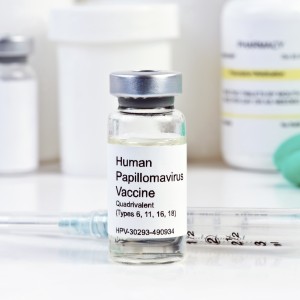 What is Cervical Cancer?
What is Cervical Cancer?
The cervix is the lower part of the uterus, and cervical cancer is one of the most common cancers that affect a woman’s reproductive organs. Cervical cancer is caused by various strains of a virus called human papilloma virus (HPV), some of which are also responsible for causing genital warts in both men and women. HPV is transmitted through skin-to-skin contact, especially during sexual intercourse. Most women’s immune systems are able to fight the infection, but in a small group of women, the virus survives for years in the body and eventually changes some of the cervical cells into cancer cells.
Routine Screenings and Early Detection of Cervical Cancer:
Cervical cancer can usually be found early by routine Pap smears (or Pap tests). During a Pap smear, a small cell sample is collected through a quick swabbing or brushing on part of the cervix, and the sample is examined in a laboratory to look for abnormalities. In the precancerous stage, abnormal cells are found only in the outer layer of the cervix and have not invaded deeper tissues. If untreated, the abnormal cells may change into cancer cells, which may spread into the cervix and surrounding organs. Conditions caught early at the pre-invasive stage are rarely life threatening and typically require only treatment at the doctor’s office. Early detection greatly improves the chances of successful treatment and prevents early cell abnormalities from becoming cancerous. All women are recommended to receive routine Pap smears within three years after the first sexual intercourse, or no later than age 21.
Avoid Being Exposed to HPV:
Avoiding exposure to HPV can prevent most pre-cancer of the cervix. HPV infection can have no symptoms for years in both men and women; someone can have the virus and pass it on without knowing. Similar to other STDs, abstaining from sex or practicing safe sex can help reduce a woman’s risk of getting infected:
- Delay first intercourse until older
- Limit the number of sexual partners
- Always use condoms
- Avoid having sex with someone who has had many other sexual partners
Vaccination Against HPV:
Various strains of HPV are responsible for most cases of cervical cancer. Gardasil is a vaccine designed to block HPV types 16 and18, which are currently the cause of about 70% of cervical cancer cases. The vaccine also blocks HPV types 6 and 11, which are not associated with cervical cancer but are responsible for 90% of genital wart cases.
The Food and Drug Administration (FDA) has approved Gardasil, and it is recommended for girls ages 11 and 12, as well as females ages 13 to 26 who have not received the vaccine. Vaccination includes a series of 3 injections over a 6-month period. To be most effective, the vaccine should be given before a person starts to have sex, because it only works to prevent HPV infection and will not treat an infection that is already there. It is also important to know that the vaccine does not protect against all cancer-causing types of HPV. Routine screenings, therefore, are still necessary.
Side effects caused by the vaccine are rare. The most common complaint is soreness at the injection site on the upper arm. Flu-like symptoms may also occur but are usually mild. Please consult with your doctor before deciding if the vaccine is right for you.


